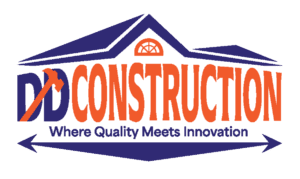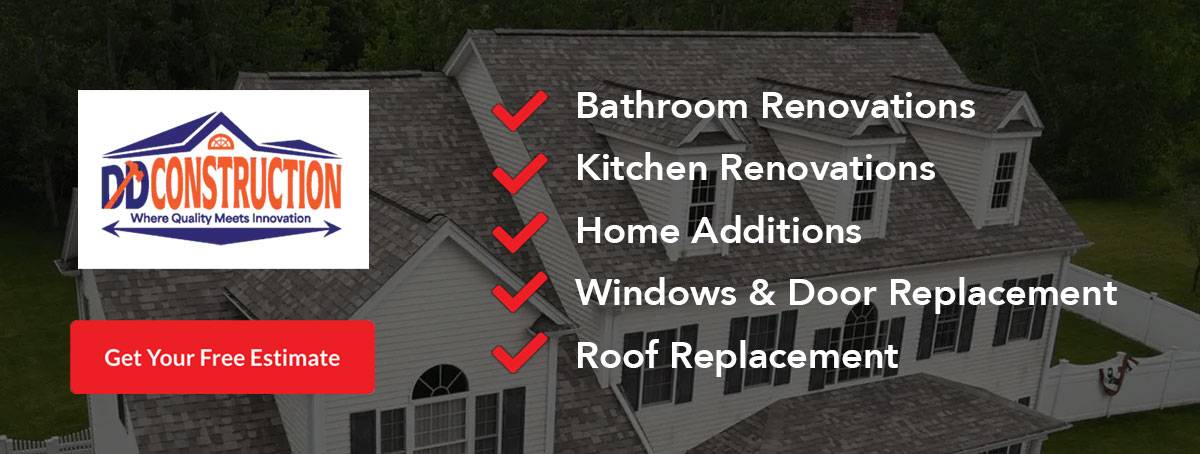What Makes a Certified Roof Contractor in Massachusetts Different?
In today’s competitive home improvement market, homeowners increasingly demand quality, durability, and safety in roofing. A certified roof contractor in Massachusetts distinguishes itself by meeting rigorous standards and maintaining extensive professional credentials. Certification is not just a label—it signifies a commitment to excellence in construction practices, adherence to state regulations, and consistent quality workmanship. Homeowners in areas such as Rehoboth and surrounding communities look for trusted professionals who combine expert craftsmanship with durable materials to ensure roofs not only look appealing but also protect against harsh New England weather.
Certification requires comprehensive training, education, and regular assessments. Certified roofers demonstrate expertise in various roofing systems—including slate and other high-end materials—while strictly following Massachusetts building codes. Homeowners benefit from reduced future roof failures, fewer warranty claims, and increased overall safety. Companies like DD Construction underscore these benefits through high-quality workmanship using state-of-the-art equipment, assuring that every aspect of the roofing service is handled with care and precision.
Moreover, certification builds customer trust. It shows that contractors remain updated on the latest techniques, products, and safety standards. This article explores what defines a certified roofing contractor in Massachusetts, the benefits of hiring one, and methods for homeowners to verify contractor certification. Ultimately, it explains why certification is essential in delivering quality roofing services that stand the test of time.
What Is a Certified Roofing Contractor in Massachusetts?
A certified roofing contractor in Massachusetts is a professional recognized through rigorous education, training, and testing. This certification differentiates seasoned roofers from those with only basic licensing by ensuring they consistently meet high quality and safety standards and comply with local building codes.
How Does Certification Differ From Licensing for Roofers?
Licensing grants legal permission to operate, but certification goes beyond that. Certification is obtained through rigorous examinations, hands-on training, and continuous education, resulting in a deep understanding of complex roofing challenges, advanced repair techniques, and product-specific installation procedures. For example, while licensed roofers might offer basic services, certified contractors can install complex slate roofs or energy-efficient systems that comply with Massachusetts’ strict codes. Studies show projects by certified professionals experience up to a 30% lower rate of post-installation issues. Certification also typically includes customer service training and safety management, further elevating service quality.
In summary, licensing is a minimum requirement, whereas certification is a voluntary, higher-level commitment that differentiates contractors by skill and proven performance. Homeowners can have confidence in the durability and performance of their roofs when they choose certified roofers.
What Are the Key Certification Programs for Massachusetts Roofers?
Massachusetts roofers obtain certification through various programs offered by recognized associations and organizations. These programs cover installation techniques, material-specific workmanship, safety procedures, and environmental compliance. Manufacturers of premium roofing materials like slate and metal may offer specialized certification courses, and national organizations often provide courses on wind resistance, energy efficiency, and proper flashing techniques.
Key programs include those from the National Roofing Contractors Association (NRCA) and manufacturer-specific certifications such as GAF Master Elite. Contractors must complete continuing education, pass practical exams, and demonstrate consistent high-quality service. Many programs emphasize sustainable practices and energy-efficient roofing techniques that help reduce heating and cooling costs, with data suggesting roofs installed by certified professionals perform longer and have fewer warranty claims.
Furthermore, certification programs stress safety training, including hazard management and proper scaffold use, ensuring that contractors can install roofs that perform well over the long term while protecting employees and homeowners.
Why Is Certification Important for Roofing Contractors?
Certification signals a contractor’s commitment to superior workmanship, strict adherence to industry standards, and continuous professional development. With standardized training and rigorous examinations, certified roofers are less likely to make installation errors that lead to warranty issues. This assurance is crucial for homeowners, particularly in challenging climates like Massachusetts.
Certified contractors use modern roofing methods to enhance longevity and energy efficiency. Their regular updates in training ensure that their work meets current building codes and safety regulations, providing homeowners with a reliable, secure roof. Certification also confers marketing advantages and builds trust, as it assures customers that the contractor meets quality benchmarks recognized by both industry peers and regulatory bodies.
What Are the Benefits of Hiring a Certified Roof Contractor in Massachusetts?
Hiring a certified roof contractor brings several advantages, including enhanced expertise, superior workmanship, and strict adherence to safety protocols and building codes. This commitment results in durable roofs, lower repair and maintenance costs, and comprehensive warranties that protect homeowners. Certified professionals offer significant peace of mind compared to contractors who meet only basic licensing requirements.
How Does Certification Ensure Higher Quality and Workmanship?
Certification is directly linked to higher quality and meticulous workmanship. Contractors who undergo rigorous training and continuous education are better equipped to handle complex roofing projects. They are proficient in advanced installation techniques whether working with traditional slate or modern energy-efficient systems. Evidence shows that roofs installed by certified professionals experience fewer issues like leaks or improper sealing. Their disciplined approach—ensuring every layer of the roofing system, from underlayment to flashing, is correctly installed—leads to consistent, high-quality outcomes.
Additionally, certified contractors typically use superior materials and have established relationships with premium suppliers. This focus on quality translates into longer-lasting roofs and reduced chances of defects. Many certified roofers deliver comprehensive post-installation warranties, further ensuring that any issues are promptly addressed.
What Warranty and Insurance Protections Do Certified Roofers Offer?
Certified roof contractors provide warranty and insurance protections that offer significant reassurance to homeowners. Their comprehensive warranties often cover both labor and materials for extended periods, well beyond standard minimum coverage, protecting against defects and installation errors. In Massachusetts, where weather can cause rapid deterioration, such warranties reduce repair costs and risks.
Certified roofers also maintain extensive insurance, including general liability and workers’ compensation, ensuring that any damage incurred during installation is covered. Robust warranty terms may even extend the manufacturer’s warranty on materials when installed by a certified professional. This combination of warranties and insurance not only safeguards the home investment but also minimizes financial exposure in the event of on-the-job accidents.
How Does Certification Guarantee Compliance With Massachusetts Building Codes?
Certification ensures that roof contractors understand and adhere to the strict building codes of Massachusetts. These codes protect property, promote safety during extreme weather, and maintain structural consistency. Certified contractors receive detailed training on state-specific practices such as proper ventilation, load distribution, and waterproofing techniques. By keeping up with code updates and undergoing periodic inspections, certified roofers minimize the risk of violations and fines.
Compliance with building codes also often means roofs are more energy-efficient and environmentally friendly, further adding to homeowner benefits. In short, certification guarantees that every installation not only meets consumer expectations but also all statutory requirements.
How Does Hiring a Certified Roofer Reduce Risks and Enhance Safety?
Hiring a certified roofer greatly reduces the risks associated with roofing projects by ensuring adherence to industry best practices. Their training emphasizes safe handling of equipment, proper use of materials, and implementation of secure work practices, reducing the chance of accidents and subsequent insurance claims. Standardized installation processes minimize risks such as water ingress, structural failures, and mold, lowering both emergency repair incidents and long-term maintenance costs.
Certified contractors also offer comprehensive follow-up support and warranty services, which provide an additional safety net for homeowners. Their expertise includes diagnosing issues early and managing risks before they escalate. With rigorous safety protocols and regular performance reviews, certified roofers ensure smoother project timelines and a more secure roofing system for your home.
How Can Homeowners Verify a Roofing Contractor’s Certification in Massachusetts?
Homeowners can confirm a roofing contractor’s certification using official resources and online tools that list licensed and certified professionals. Verification is essential to ensure that the contractor meets state criteria and has a proven track record of successful projects.
What Official Resources List Certified Roofing Contractors in Massachusetts?
Several official resources are available for verifying contractor certifications. State government websites, such as the Massachusetts Executive Office of Public Safety and Security, maintain online databases showing licensing, certification status, and inspection records. Professional organizations like the National Roofing Contractors Association (NRCA) and the Roofing Contractors Association of Massachusetts provide searchable directories of certified members. Additionally, manufacturers of premium products, such as those offering the GAF Master Elite program, maintain lists of certified roofers.
A table below outlines some useful resources:
| Resource Name | Type | Verified Information | Accessibility |
|---|---|---|---|
| Massachusetts Contractor Database | State Government Website | Licensing, certifications, inspections | Free online search |
| NRCA Certified Contractors List | Trade Association | Certification levels, training completion | Membership directory |
| Roofing Contractors Association MA | Professional Association | Membership status, references | Public directory |
| GAF Master Elite Directory | Manufacturer Partnership | Certification status, project examples | Online access |
| Better Business Bureau (BBB) | Consumer Advocacy | Reviews, dispute resolutions | Public listing |
| HomeAdvisor | Review Platform | Customer ratings, certifications summary | Free search |
| Angie’s List | Review & Referral | Customer feedback, verified credentials | Membership required |
Homeowners should cross-check multiple sources for a complete picture of a contractor’s credentials.
How to Check a Roofer’s License and Certification Status Online?
To verify a roofer’s status online, visit state-run contractor verification sites or trusted referral platforms and enter the contractor’s name or license number. These sites provide details such as validity periods, recorded complaints, and certification levels. Many platforms allow you to download documentation, which can be useful during in-person consultations.
Using advanced search features, homeowners can filter by certification level or specialization. It is advisable to consult more than one website to ensure the information is accurate and up-to-date.
What Questions Should You Ask to Confirm a Roofer’s Certification?
When interviewing potential roofing contractors, ask for proof of current certification and licensing. Questions might include: • “Can you provide documentation of your certification and licensing?” • “How often do you update your certifications, and through which organizations?” • “Are your credentials available on any official databases?”
Additionally, inquire about their training in specific systems (such as slate or energy-efficient roofing), as well as details regarding their warranty and insurance policies. Requesting this documentation helps verify that the contractor is committed to maintaining high standards.
What Roofing Materials and Certifications Should You Expect From Certified Contractors?
Certified roofing contractors are expected to work with high-quality materials and provide comprehensive certifications that assure material durability and performance under varying climate conditions. Homeowners should expect options ranging from traditional slate systems to modern energy-efficient solutions, all backed by rigorous testing for weather resistance, longevity, and ease of maintenance.
Which Roofing Materials Are Commonly Certified in Massachusetts?
In Massachusetts, common certified roofing materials include: 1. Slate – Renowned for its longevity, natural aesthetics, and fire resistance. 2. Asphalt Shingles – Valued for versatility, cost efficiency, and resistance to fire and wind. 3. Metal Roofing – Known for energy efficiency, low maintenance, and corrosion resistance. 4. Composite Roofing – Engineered to mimic traditional materials with enhanced durability. 5. Wood Shingles – Offering natural insulation and warmth. 6. Clay or Concrete Tiles – Recognized for thermal performance and durability. 7. Synthetic Roofing Materials – Developed for superior impact and weather resistance.
Each material typically comes with manufacturer-backed warranties which, when installed by certified contractors, ensure compliance with strict industry standards.
How Do Energy-Efficient Roofing Certifications Impact Your Roof Choice?
Energy-efficient roofing certifications are critical for homeowners looking to reduce energy costs and improve sustainability. Certified energy-efficient materials are tested rigorously for thermal performance and reflectivity, often demonstrating measurable benefits such as reduced cooling costs or improved insulation. Homeowners are provided with performance data to help balance upfront costs with long-term savings. Additionally, energy-efficient roofs can qualify for rebates and tax incentives, further enhancing their value as part of a sustainable home improvement strategy.
What Material-Specific Warranties Do Certified Roofers Provide?
Certified roof contractors typically offer robust warranties that cover both labor and materials over extended periods. For example, a slate roof may be warranted for 50+ years, while asphalt shingle systems might come with 20- to 30-year warranties. The accompanying documentation details coverage terms, maintenance responsibilities, and procedures for addressing defects. These warranties, combined with the assurance of proper installation by certified professionals, help minimize the likelihood of costly repairs and provide long-term peace of mind.
A summary table of typical warranty coverage is often provided by the contractor to help homeowners compare options based on material and installation quality.
How Do Certified Roof Contractors in Massachusetts Compare to Non-Certified Roofers?
Certified roof contractors in Massachusetts generally deliver higher quality, reliability, and safety than non-certified counterparts. Their commitment to rigorous training and adherence to industry standards results in precise installation, better material handling, and improved problem-solving—all of which contribute to increased durability and reduced maintenance costs.
What Are the Main Differences in Quality and Service?
The key differences between certified and non-certified contractors lie in technical expertise, communication, and follow-up support. Certified contractors possess in-depth product knowledge and are better prepared for complex tasks—from intricate slate roof installations to advanced energy-efficient systems. Their thorough documentation, detailed warranties, and reliable after-service support lead to higher customer satisfaction. In contrast, non-certified contractors may have variable quality, potentially leading to higher repair costs over time.
How Do Costs Differ Between Certified and Non-Certified Roofers?
While certified roofers often charge higher upfront costs due to investment in training, certification fees, and high-quality materials, the long-term benefits usually outweigh these expenses. Fewer repairs, longer-lasting roofs, and comprehensive warranty coverage result in lower overall lifecycle costs. Detailed, itemized quotes from certified professionals help homeowners see the added value through reduced maintenance and repair needs.
What Are the Risks of Hiring Non-Certified Roofing Contractors?
Non-certified contractors increase risks such as poor workmanship, non-compliance with building regulations, and insufficient safety practices. Cost-cutting measures may lead to improperly installed roofs that are prone to leaks, structural damage, and premature deterioration. Additionally, non-certified roofers may not carry adequate insurance or offer robust warranties, exposing homeowners to higher financial liabilities and future repair issues.
What Are the Steps to Become a Certified Roof Contractor in Massachusetts?
For roofing professionals, becoming a certified roof contractor in Massachusetts requires a series of steps that combine education, practical experience, and ongoing training. Certification is not achieved overnight; it is a continuous process aimed at refining technical skills and keeping current with industry standards.
What Are the Licensing and Education Requirements?
Prospective roofers start by obtaining a basic contractor’s license from state regulatory bodies, which involves proving practical experience, passing a foundational exam, and meeting requirements like background checks and insurance. After licensing, contractors must enroll in specialized courses focusing on advanced installation methods, safety procedures, and quality control. These courses, offered by organizations like the NRCA, include both theoretical and hands-on components. Successful completion leads to certifications that validate the contractor’s skills and adherence to the highest standards.
How Long Does the Certification Process Take?
The certification process varies with experience. Typically, obtaining the basic license takes several months, followed by an additional six months to a year of specialized training and practical experience to achieve full certification. For experienced roofers, the process may be faster; for newcomers, it might take longer as they acquire the necessary technical skills. Certification is an ongoing commitment, with continuing education required to stay up-to-date with industry practices.
What Resources Support Roofers Seeking Certification in Massachusetts?
Roofers can access a variety of resources including state-approved training centers, professional organizations like the NRCA and the Roofing Contractors Association of Massachusetts, and manufacturer-sponsored programs such as GAF Master Elite. Online platforms, industry seminars, and apprenticeship programs also provide valuable hands-on experience and mentoring. These resources help roofers continuously upgrade their skills and contribute to higher safety and quality standards across the industry.
What Questions Should Homeowners Ask When Choosing a Certified Roofing Contractor?
Homeowners must perform thorough interviews to ensure the contractor they choose is fully qualified for their project. Asking detailed questions about experience, certification credentials, warranty terms, and customer service history can help minimize risks.
How to Evaluate a Roofer’s Experience and Certification Credentials?
Homeowners should ask for detailed portfolios, customer references, and proof of certification. Questions such as “How many years have you been installing roofs using certified methods?” and “What certifications do you hold for energy-efficient or slate roofing?” help assess expertise. Requesting documentation of training and previous projects ensures that the contractor’s qualifications align with the project’s requirements.
What Contract and Warranty Details Should You Clarify?
It is important to clarify all contract details before work begins. Homeowners should ask for clear outlines of the scope of work, material specifications, cost breakdowns, and timelines. Inquire specifically about warranty details—including what is covered, duration, and conditions for claims—and ensure that the warranty is backed by both the contractor and the manufacturer. Discuss payment schedules, cancellation policies, and procedures for handling any unexpected issues to ensure full clarity and legal protection.
How to Assess Customer Reviews and References for Certified Roofers?
Review customer testimonials and request references from similar projects. Look for feedback that addresses timeliness, workmanship quality, and the effectiveness of warranty support. Cross-referencing reviews on platforms like the Better Business Bureau, HomeAdvisor, or Angi can provide an unbiased perspective. Directly contacting past clients often yields additional insights into the contractor’s responsiveness and overall performance.
Frequently Asked Questions
Q: How long does certification usually last for a roofing contractor in Massachusetts? A: Certification durations vary, but typical programs require renewal every two to three years through continuing education and re-assessment, ensuring contractors stay updated on changing building codes, new materials, and advanced installation techniques.
Q: Are certified roof contractors significantly more expensive than non-certified ones? A: While certified roof contractors may charge higher upfront rates because of their advanced training and superior installation practices, the long-term benefits—such as fewer repairs, enhanced warranties, and increased safety—make the investment more cost-effective overall.
Q: How can I verify a roofing contractor’s certification status? A: Verification can be done through state databases, trade association directories, or manufacturer-sponsored lists like the GAF Master Elite program. Online tools allow you to search by contractor name or license number to view detailed records, including inspection history and customer feedback.
Q: What kind of warranty do certified roof contractors offer? A: Certified contractors generally offer robust warranties covering both labor and materials. These warranties can range from 20 to over 50 years depending on the roofing material, and include detailed documentation to ensure homeowners are protected against defects or installation issues.
Q: What should I do if a certified contractor falls short of expectations? A: If issues arise, review the warranty policy and contract to understand the terms for remediation. Most certified contractors have clear processes for addressing deficiencies, which may include repair, replacement, or compensation. You can also file a complaint with the relevant trade association or state regulatory body if necessary.
Q: Can a roofing contractor be certified in multiple specialty areas? A: Yes, many certified roof contractors expand their expertise to include specialties such as energy-efficient roofing, slate installation, or commercial roofing, ensuring they can offer tailored solutions for diverse roofing needs.
Q: Does certification guarantee that a roof will last longer? A: While no installation guarantees indefinite longevity, certified roof contractors significantly increase roof performance and lifespan by following industry best practices, using premium materials, and offering comprehensive warranty coverage.





